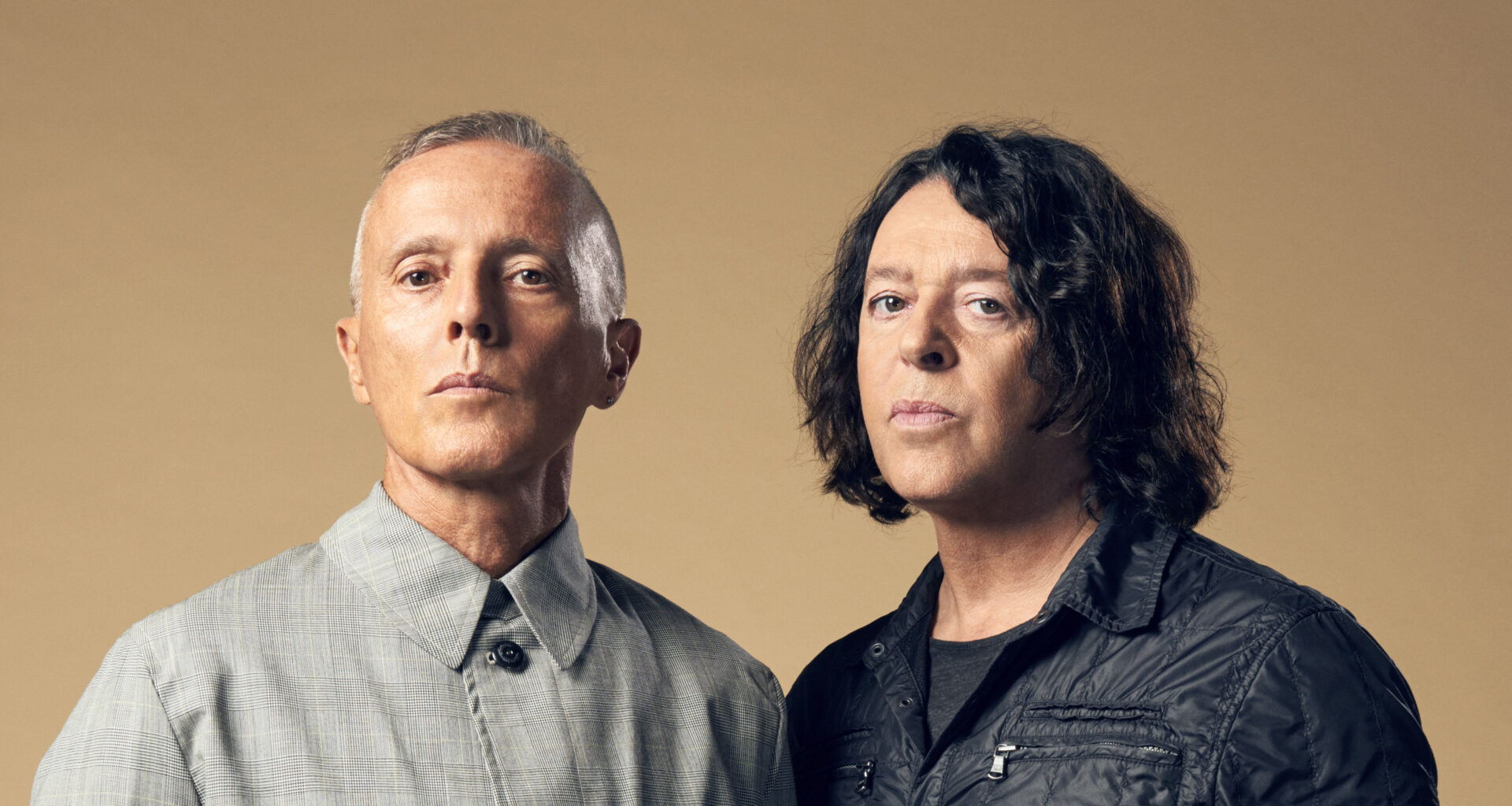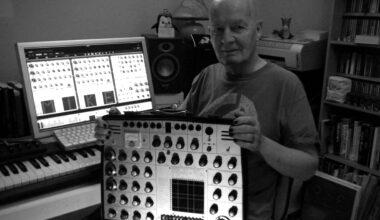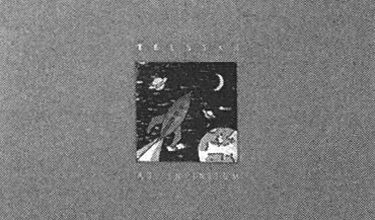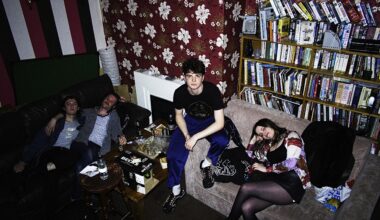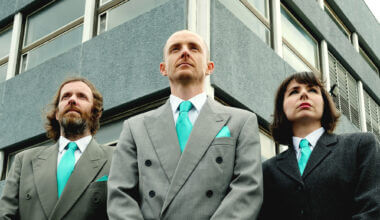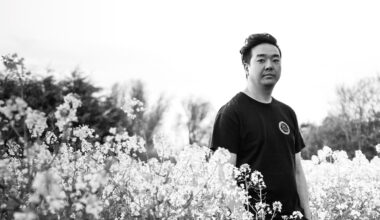As Tears For Fears declare themselves back in business with a Greatest Hits and new album due in 2018, we talk Numan, cover versions, the synthpop misnomer and why Kanye is a dick…
Curt Smith, one half of Tears For Fears, is being interviewed by a tortoise. The tortoise is asking him questions (or, rather, a helpful human is holding a microphone up to its scaly testudinal mouth, while probing enquiries are playing out over a PA), but Curt isn’t really listening. He’s too busy shrinking back in polite horror from the claggy urates snaking out of the tortoise’s under-bits and trickling down the helpful human’s legs.
If this is being a pop star, Curt Smith was never meant to be a pop star. It’s just too mad a world.
In many ways, Tears For Fears is the story of two musicians who were never meant to be pop stars. And it’s the story of a band that was never meant to be a band. But they actually were a band, years before you ever heard of them. Hailing from the mean streets of Bath, they were called Graduate, and they had a Top 10 hit in Spain with a song that chided Elvis Costello for not playing ska. But then, one day, Curt and Roland Orzabal (the one with the big hair and the even bigger voice; you know, the one who’s never been interviewed by a pissing tortoise in a YouTube video), were sat in Curt’s flat.
“Gary Numan came on the TV,” recalls Roland. “He was Number One with ‘Are “Friends” Electric?’ and we just looked at each other and went, ‘Fuck!’. It had taken us a while to get up to get to the point where we were jumping around onstage wearing mod suits, but we soon ripped them off and threw them in the bin.”
So, instead of being a band, Tears For Fears became an oddity. Two “natural born shoegazers” thrust into an era where George and Andrew were painting the town Wham! red on one half of the pop map, while The Jam and The Smiths were building council estates of riot and regret all over the other. And, in the middle of it all, there were these two softly-spoken blokes with their strange dances (more of which below) and their songs that sampled the shipping forecast, who did everything that George Michael and Paul Weller and Morrissey did but, somehow, didn’t get recognised for any of it.
My theory is that it happened because they had a whole bunch of massive hits, ‘Everybody Wants To Rule The World’, ‘Shout’, ‘Head Over Heals’, ‘Sowing The Seeds Of Love’, et-kerchingingly-cetera. And, back in the 1980s, you weren’t allowed to have massive hits and be properly respected. Unless you were Prince.
But you’re here to read their theories, not mine. And you’re here to find out how they regard their legacy, three and a half decades after having the first of those hits (’Mad World’) because, after all, they’ve got a Greatest Hits out.
“It’s a thin legacy,” frowns Roland. “I don’t think it’s enough.”
“I’m not convinced that we’ve done anything that important,” nods Curt, “or that you can consider it a complete legacy. It’s important to us, without question, and to people who were fans of ours, but in the grand scheme of things, it’s… music.”
But, by that token, Paul McCartney hasn’t left a legacy either.
“Well,” smiles Curt, “I think The Beatles did a bit more than we have for music.”
This theorising is clearly going nowhere.
If Tears For Fears have a wonky legacy, it’s partly their own fault. Firstly, because they’re the least prolific band this side of The Stone Roses and secondly because they split up following 1989’s organic masterpiece, ‘The Seeds Of Love’ (although Roland put out two further, contractually obligated albums under the TFF brand) and they only reconvened in 2004 for the grotesquely overlooked, ‘Everybody Loves A Happy Ending’.
Interestingly, two tracks from the Curtless years appear on ‘Rule The World: The Greatest Hits’: the muscular ‘Break It Down Again’ from 1993’s ‘Elemental’, and the yowling title track from 1996’s ‘Raoul And The Kings Of Spain’. So, does Curt consider them both Tears For Fears albums after all?
“No,” he gamely semi-sulks in a mid-Atlantic accent formed from living 30 years the wrong side of Corrachadh Mòr. “Because I wasn’t there. But I like ‘Break It Down Again’, so it’s fine.”
“He plays on it now when we do it live,” smiles Roland, “he even sings on it. When people come and see us, they don’t think, ‘That’s the song without Curt’. It’s a Tears For Fears song. They see us both performing it and no one bats an eyelid. And he would have sung other songs on those albums if he’d been there, like ‘Goodnight Song’.”
Thankfully, while Tears For Fears did their best to beat their reputation into the thinnest possible sheet of gold leaf, other artists were tending the shrine by gilding their own work with its influence.
“I think our legacy was enhanced by other artists,” enthuses Roland. “I mean, who knows what would have happened if ‘Head Over Heels’ hadn’t featured on ‘Donnie Darko’ or Gary Jules hadn’t recorded ‘Mad World’ in that way…”
“That way” being a Michael-Stipe-a-like piano rendition, which ended up as the most magnificently depressing Christmas Number One since ‘Two Little Boys’.
“When it came out, I was like, ‘Whoa! I didn’t realise how good that song was,” continues Roland. “Everyone who’s reinterpreted what we’ve done has, in my eyes, taken the lyrics and sung them properly. They’ve put them in a proper setting; matched the music with the lyrics, which is something we never really did. Take Lorde’s version of ‘Everybody Wants To Rule The World’, that is as haunting and scary as the title suggests. And not some shuffly version of [lamé-suit-wearing cheesemongers] Modern Romance’s ‘High Life’, which we did!”
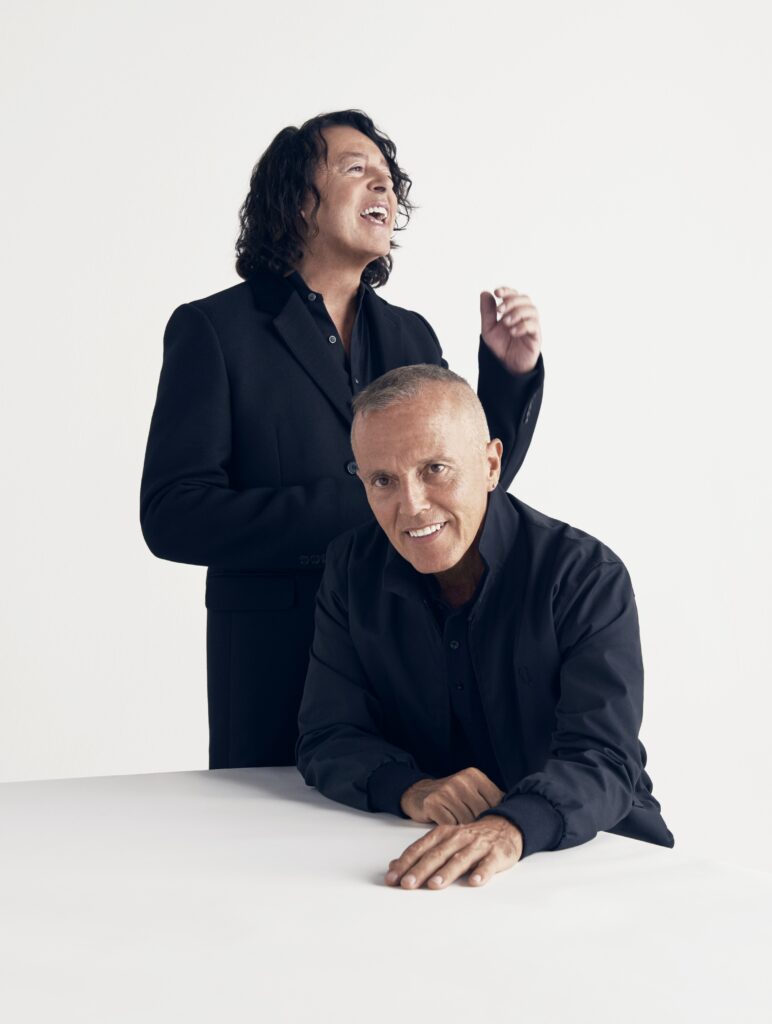
It’s no surprise that Tears For Fears have been covered, but it’s sometimes a surprise by who. And how. The landmark track on Kanye West’s ‘808s & Heartbreak’ was lifted wholesale from TFF’s early classic, ‘Memories Fade’, retitling it ‘Coldest Winter’. Was that as flattering as the other times their songs had reappeared?
“It was initially flattering… until he didn’t want to pay us,” mutters Curt. “He’s a dick.”
“He did it without permission,” continues Roland. “I had this phone call from his agent. I was in an airport – I think it was Languedoc – and he said, ‘We have to get clearance on this immediately’. I said, ‘Well, can I hear it?’. I know it’s just the way Kanye West rolls, but now my youngest son refers to that song as ‘Coldest Winter’ not ‘Memories Fade’, because that’s what he knows.”
If this interview had been conducted back in 1983, when Tears For Fears’ ghostly first album, ‘The Hurting’, haunted your local Our Price, we’d have been talking about primal scream therapy and the man who evangelised it, Arthur Janov. Taking their obsession even further than John Lennon before them and Bobby Gillespie after them, Tears For Fears not only cribbed their name from Arty’s psychotheories, but crafted that entire debut LP around them, in the way that only a couple of angst-ridden prodigies possibly could have.
Janov recently passed away, so we won’t be going back to all that “children are blank slates” bullshit, thank you very much. But we might be going back to some of the underlying feelings that educated ‘The Hurting’ when Tears For Fears finally release their long-awaited new album next year, provisionally titled ‘The Tipping Point’ (26 tracks already in the can, worrywarts. Relax!).
“Very early on, the mandate was to go back and listen to ourselves when we were 21,” reveals Roland, “and remind ourselves of how personal and emotional the music was. Back then, we weren’t talking about the usual stuff. We were talking about feelings, not the closure of the coal mines, because we didn’t really have coal mines in Bath. So, that’s what we tried to do this time as well. Is it a tear-jerker? I think so. It is for me.”
And they might be going back to some of their electronic sounds, judging by the early hint dropped on the Greatest Hits bonus track, ‘I Love You But I’m Lost’. The track is four minutes and 21 seconds of Erasure-battling Daleks and Demogorgons, while someone weeps over the shouldering ashes of a vintage synthesiser collection immolated on a Guy Fawkes bonfire.
“I had a playback of the main tracks to a couple of guys in the industry,” recalls Roland, “and they said to me, ‘This is the most clubby album you’ve ever done’. We’re guitarists, but I always liked the synthpop duo misnomer. We focused so much on electronics in the early days I wouldn’t even say it’s a misnomer. Even though a lot of the songs were written on guitars, they only came to life when they were put onto synthesisers.
“A song like ‘Mad World’ sounds absolutely crap on an acoustic the way I wrote it. But when you take all those rhythms and put them on the CR-78 drum machine, get the bass drone on a Jupiter-4, programme the Prophet trumpet and tom sounds, and then add LinnDrums… they were incredibly important. We were very much technology reliant. Every time a new keyboard came out, like the Yamaha DX7, we would use it on our next track. And so would Howard Jones. But, definitely, Tears For Fears wouldn’t have happened without the technology.”
So how has that changed, all these years later?
“These days, I’m a Logic-head,” offers Roland. “It would’ve been a lot quicker if we’d had today’s technology when we were making records like ‘The Seeds Of Love’. To bounce a bass drum track took us two weeks. Now it’s all on a grid. It’s easy.”
It’s not that easy. Not when you’re the wrong side of 50 in the music industry. Earlier this year, Mick Jagger put out a couple of tracks that attempted to get back in touch with his youth, and they sold fewer than 2,000 copies. Will they be terribly upset if they don’t sell gazillions?
“The market’s changed,” says Roland, pragmatically. “Those days are gone. It’s all to do with live work now. That’s what people want us to do, and we find ourselves doing it to quite huge audiences at times, which is a shock. To go and play Rock In Rio or Hyde Park, you suddenly think, ‘We’ve hardly been doing anything and the reaction is ridiculous’.”
But, if the devil appeared before you now and said you could have a Number One hit providing you did that crazy, bully-magnet dance from the ‘Mad World’ video in your next one, would you take the deal? Roland stops, stares, makes me all too aware that the already dark room we’re in has now thundered its way towards near-blackness. And he says, in the rich deep voice that soundtracked my childhood, my teens and my adulthood, “The devil has already appeared, and he’s sitting right in front of you.”
It’s time to go. But, first! A question only a tortoise – wise, old, hardened by life and, you know, a shell – would ask. Seeing as how the 1989 Tears For Fears once wrote a song called ‘Advice For The Young At Heart’, does the 2017 Tears For Fears have any advice for the old at heart?
Roland: “Don’t drink too much. Add salt to food. And eat animal fat.”
I was hoping for life guidance, really. Not nutritional advice.
Curt: “Shit will be okay.”
Roland: “No. No it won’t.”
Curt: “And there you have us. In a nutshell.”
And there you do.
‘Rule The World: The Greatest Hits’ is out on Virgin EMI
